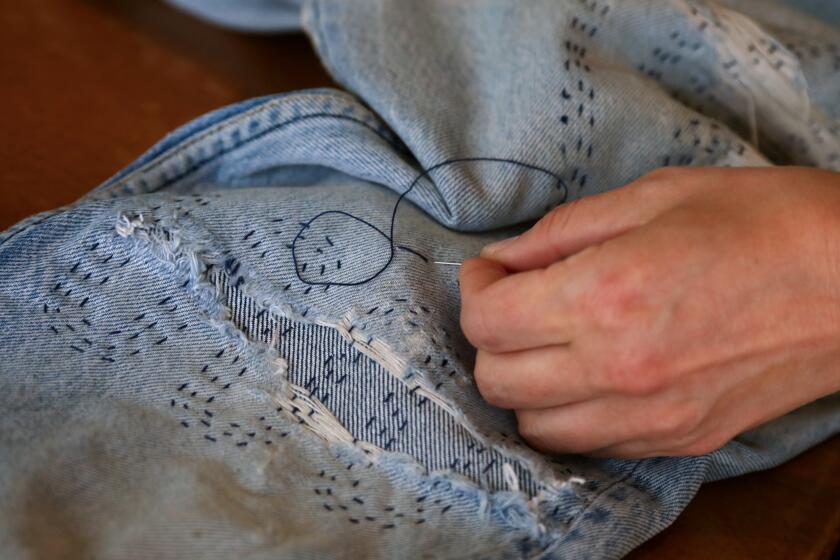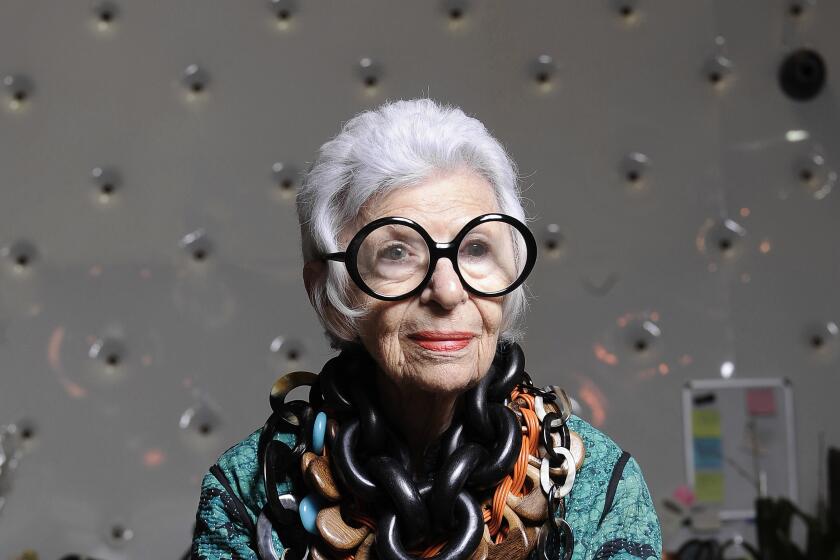A garment wage fight that’s close to home
“Made in L.A.,” a “P.O.V.” documentary that airs Sunday night on KCET, tells the story of a three-year boycott and lawsuit by criminally underpaid and overworked garment workers from a host of Los Angeles sweatshops -- many, it remains easy to forget, operating within walking distance of City Hall, Parker Center and this newspaper -- against the clothing retailer Forever 21. (The campaign was based on the principle that since the retailer sets the price, it is ultimately responsible for the wage that is paid to the worker.)
Shot and directed with a sympathetic ear and eye by Spanish filmmaker Almundena Carracedo, who co-produced the documentary with Robert Bahar, it is a valuable and moving film -- and entertaining as well -- not merely for what it says about the continuing need for organized labor, and of the difficulty of keeping it organized, but also about how that process affects individual lives in ways beyond the wage. And that the lives it explores are not the sort that get much of a shake on television makes it all the more precious.
Completely bilingual (there are English subtitles when Spanish is spoken, and the reverse), the film is not a white paper on, or an exposé of, abuses by the garment industry, but a document of an experience. There are no dispassionate expert voices here, only those of people involved in the work and the boycott, as organizers or troops -- some ardent, some reluctant. There is no comment from Forever 21 -- the company was asked but declined to participate -- apart from the random remarks of store managers (sent out to photograph the marchers) and the mute testimony of the firm’s owner driving away as workers picket his house.
“Made in L.A.” tells its story through three women: Lupe Hernandez from Mexico City; Maura Colorado, from El Salvador, who left three young children in hopes of finding the work to support them; and Maria Pineda, also from Mexico and married to an abusive husband. All find their way to the Garment Workers Center, the advocacy group that conceived and ran the campaign, which finally led to a monetary settlement and a pledge by the company to obey the law. Each emerges from the experience a different, more able, emancipated person. Where other filmmakers might take snapshots of home lives for a bit of color and context, Carracedo spends time with them, so that domestic decorations and rituals become the fabric that supports the larger action.
Of the three, Hernandez might be called the breakout star. Five feet tall and naturally pugnacious, she eventually applies for a job at the center and becomes an organizer; she finds a voice, and glows brighter with experience. The end of the film finds her traveling to Hong Kong in a delegation to protest the World Trade Organization; looking down on the city from a high hill, she remembers what it was just to cross the Rio Grande; now she’s crossed an ocean.
“But the more I learn, the lonelier I feel,” she reflects. “Ignorance somehow protects you. . . . But then I realize I’ve come this far, and no one can take that away from me.”
--
‘P.O.V.: Made in L.A.’
Where: KCET
When: 10:30 to midnight Sunday
Rating: TV-PG (may be unsuitable for young children)
More to Read
Only good movies
Get the Indie Focus newsletter, Mark Olsen's weekly guide to the world of cinema.
You may occasionally receive promotional content from the Los Angeles Times.







